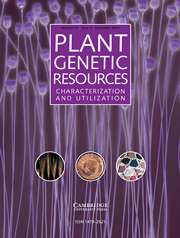Article contents
Transcriptome assembly and polymorphism detection in Silene ciliata (Caryophyllaceae)
Published online by Cambridge University Press: 30 April 2019
Abstract
Silene ciliata (Caryophyllaceae) is a key species to test evolutionary hypotheses in a global warming context. The recent advances in Next Generation Sequencing technologies can help in providing clues about climate-mediated local adaptation. In the present study, we analysed the full transcriptome of six individuals of S. ciliata from Central Spain, by aligning it with the transcriptome of S. latifolia. We aimed (a) to identify Single Nucleotide Polymorphisms (SNPs) in the transcriptome of the species, (b) to describe the biological function of the polymorphic genes expressed and (c) to identify loci that may be involved in local adaptation processes at optimal and marginal populations of the species. We identified a total of 147,118 SNPs distributed throughout 12,688 sequences. The number of polymorphic sequences annotated was 8023. One hundred thirty sequences containing polymorphisms strongly associated with optimal and marginal conditions were selected. Gene ontology searches were successful for 118, and many of these were related to responses to stress (n = 19) and abiotic stimulus (n = 16). Genomic data generated provide a starting point for further research on the identification of candidate genes related to local adaptation and other processes in the species.
- Type
- Short Communication
- Information
- Copyright
- Copyright © NIAB 2019
References
- 1
- Cited by


